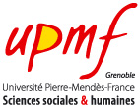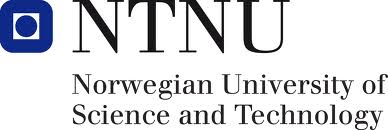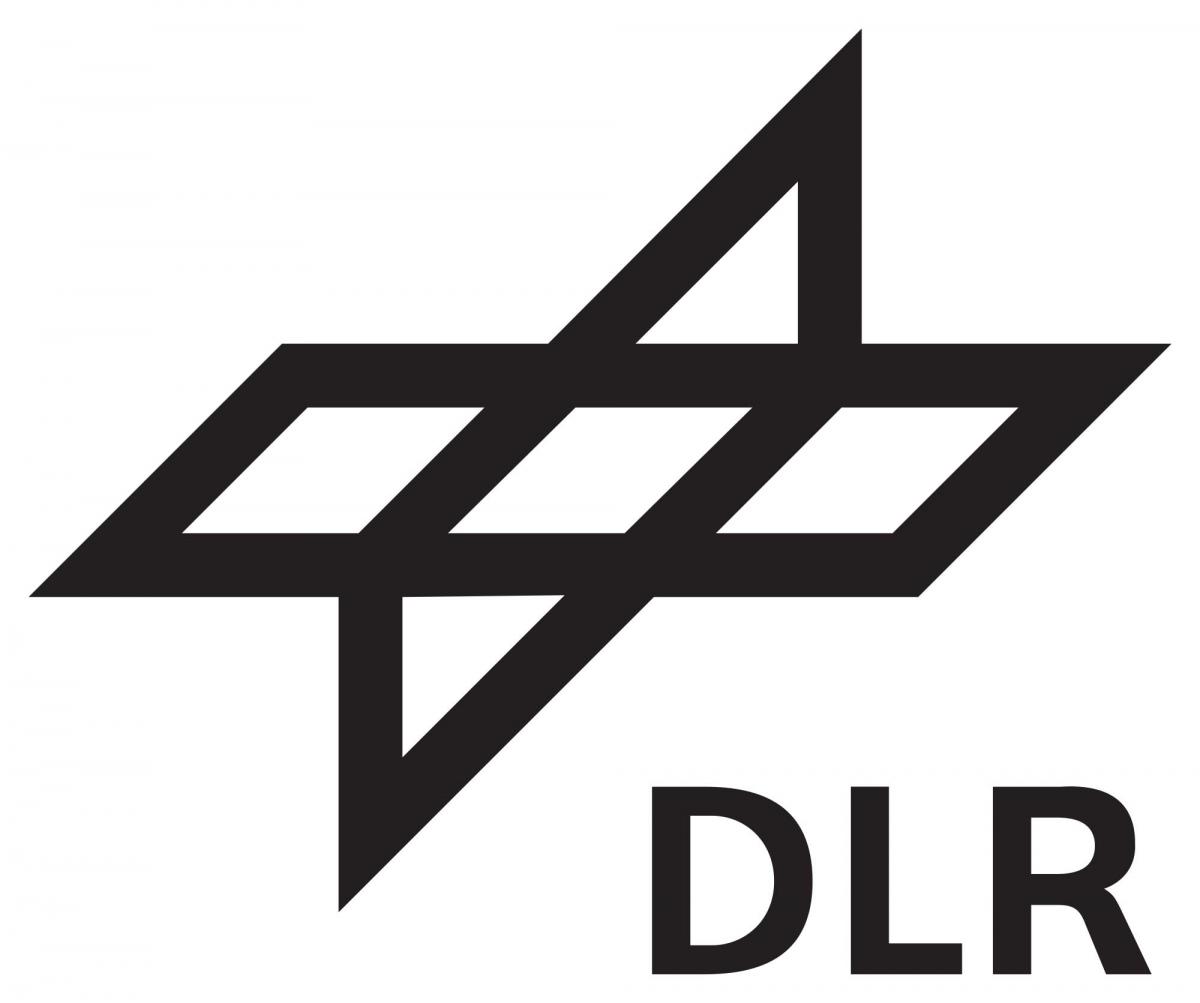|
Potsdam‐Institut für Klimafolgenforschung (PIK), Germany
|
|
 Potsdam Institute for Climate Impact Research (PIK), founded in 1992, is a government-funded research institute addressing crucial scientific questions in the fields of global change, climate impacts and sustainable development. It is a member of the Leibniz Association, whose institutions perform research on subjects of high relevance to society. PIK currently has around 300 employees and in 2010 its core funding from the federal and state governments amounted to approx. 9 Mio€. Additional project funds come from external agencies. At PIK researchers in the natural and social sciences work together to study global change and its impacts on ecological, economic and social systems and to devise general strategies for a sustainable development of humankind and nature. Through data analysis, computer simulations and models, PIK provides decision makers with sound information about climate change and novel concepts for sustainable development. In addition to publishing results in scientific journals, the Institute advises regional, national and global organisations and authorities. PIK plays an active and often leading role in activities such as the International Geosphere-Biosphere Programme (IGBP), the Intergovernmental Panel on Climate Change (IPCC) and the Millennium Ecosystem Assessment (MA). Potsdam Institute for Climate Impact Research (PIK), founded in 1992, is a government-funded research institute addressing crucial scientific questions in the fields of global change, climate impacts and sustainable development. It is a member of the Leibniz Association, whose institutions perform research on subjects of high relevance to society. PIK currently has around 300 employees and in 2010 its core funding from the federal and state governments amounted to approx. 9 Mio€. Additional project funds come from external agencies. At PIK researchers in the natural and social sciences work together to study global change and its impacts on ecological, economic and social systems and to devise general strategies for a sustainable development of humankind and nature. Through data analysis, computer simulations and models, PIK provides decision makers with sound information about climate change and novel concepts for sustainable development. In addition to publishing results in scientific journals, the Institute advises regional, national and global organisations and authorities. PIK plays an active and often leading role in activities such as the International Geosphere-Biosphere Programme (IGBP), the Intergovernmental Panel on Climate Change (IPCC) and the Millennium Ecosystem Assessment (MA).
|
| International Institute for Applied Systems Analysis (IIASA), Austria |
|
 International Institute for Applied Systems Analysis (IIASA), founded in 1972, is an international non-profit research organization that conducts policy-oriented research into problems that are too large or too complex to be solved by a single country or academic discipline. IIASA concentrates its research efforts within three core research themes: energy and climate change; Food and water; Poverty and inequality. Research areas are encompassed in nine programs, of which the Energy Program (ENE) is participating in ADVANCE. International Institute for Applied Systems Analysis (IIASA), founded in 1972, is an international non-profit research organization that conducts policy-oriented research into problems that are too large or too complex to be solved by a single country or academic discipline. IIASA concentrates its research efforts within three core research themes: energy and climate change; Food and water; Poverty and inequality. Research areas are encompassed in nine programs, of which the Energy Program (ENE) is participating in ADVANCE.
|
| Ministerie van Infrastructuur en Milieu, Planbureau voor de Leefomgeving (PBL), Netherlands |
|
 Planbureau voor de Leefomgeving (PBL), as an agency, forms part of the Ministry of Infrastructure and the Environment. The PBL Netherlands Environmental Assessment Agency conducts scientific assessments and policy evaluations to support policy-making in the field of environmental protection and spatial planning. This is done at both the national, European and global level. The Energy and Climate Programme of PBL explores and evaluates energy and climate policy options. A key tool used for this purpose is the IMAGE integrated assessment modelling framework, including the world energy model TIMER and the climate policy model FAIR. This framework links energy, land use and climate modelling to provide an integrated description of global change. Planbureau voor de Leefomgeving (PBL), as an agency, forms part of the Ministry of Infrastructure and the Environment. The PBL Netherlands Environmental Assessment Agency conducts scientific assessments and policy evaluations to support policy-making in the field of environmental protection and spatial planning. This is done at both the national, European and global level. The Energy and Climate Programme of PBL explores and evaluates energy and climate policy options. A key tool used for this purpose is the IMAGE integrated assessment modelling framework, including the world energy model TIMER and the climate policy model FAIR. This framework links energy, land use and climate modelling to provide an integrated description of global change.
|
| Fondazione Eni Enrico Mattei (FEEM), Italy |
|
 Fondazione Eni Enrico Mattei (FEEM) is a non-profit, non-partisan research institution established In Italy to carry out research in the field of economics and sustainable development. It has become a leading international research centre and one of its principal aims is to promote interaction between academic, industrial and public policy spheres in order to comprehensively address concerns about economic development and environmental degradation. FEEM conducts research on a wide range of climate change and sustainability, energy and economic issues and has achieved a leading position in the international research community. FEEM has a sound and proven experience in coordinating European projects and scientific networks and it has become the privileged interlocutor of a number of policy institutions, among which the IPCC, the World Bank, the European Commission, Italian Ministries, Regions and local municipalities. In the last 20 years FEEM has proved to have a great experience in the dissemination of theoretical and applied research with 350 seminars and workshops and 18 large-scale conferences efficiently organised. FEEM research effort is also represented by working papers, policy briefs, journals and books published in its web site. Fondazione Eni Enrico Mattei (FEEM) is a non-profit, non-partisan research institution established In Italy to carry out research in the field of economics and sustainable development. It has become a leading international research centre and one of its principal aims is to promote interaction between academic, industrial and public policy spheres in order to comprehensively address concerns about economic development and environmental degradation. FEEM conducts research on a wide range of climate change and sustainability, energy and economic issues and has achieved a leading position in the international research community. FEEM has a sound and proven experience in coordinating European projects and scientific networks and it has become the privileged interlocutor of a number of policy institutions, among which the IPCC, the World Bank, the European Commission, Italian Ministries, Regions and local municipalities. In the last 20 years FEEM has proved to have a great experience in the dissemination of theoretical and applied research with 350 seminars and workshops and 18 large-scale conferences efficiently organised. FEEM research effort is also represented by working papers, policy briefs, journals and books published in its web site.
|
| JRC - Joint Research Centre - European Commission (IPTS), Belgium |
|
 European Commission – DG JRC is one of the seven institutes making up the Joint Research Centre (JRC) of the European Commission (EC). The mission of the JRC is to provide scientific in support of the European policy-making process. Its prime objectives are to monitor and analyse science and technology developments, their cross-sectoral impact and their inter-relationship with the socio-economic context, and their implications for future policy development. The JRC operates international networks, pools the expertise of high level advisors and presents information in a timely and synthetic fashion to policy makers. The Economics of Climate Change, Energy and Transport unit focuses on the development of scenarios for energy supply and demand, utilizing appropriate modelling and forecasting tools. In particular, the unit focuses on the continuous update of techno-economic information; analysis the relationship between the process of technology adoption and substitution; supporting the prioritization of R&D in the energy field; assessment of the interaction of GHG reduction policies with other environmental regulations promoted at EU-level. European Commission – DG JRC is one of the seven institutes making up the Joint Research Centre (JRC) of the European Commission (EC). The mission of the JRC is to provide scientific in support of the European policy-making process. Its prime objectives are to monitor and analyse science and technology developments, their cross-sectoral impact and their inter-relationship with the socio-economic context, and their implications for future policy development. The JRC operates international networks, pools the expertise of high level advisors and presents information in a timely and synthetic fashion to policy makers. The Economics of Climate Change, Energy and Transport unit focuses on the development of scenarios for energy supply and demand, utilizing appropriate modelling and forecasting tools. In particular, the unit focuses on the continuous update of techno-economic information; analysis the relationship between the process of technology adoption and substitution; supporting the prioritization of R&D in the energy field; assessment of the interaction of GHG reduction policies with other environmental regulations promoted at EU-level.
|
| University College London (UCL), United Kingdom |
|
 University College London (UCL) is one of the UK’s premier universities and is ranked in the world’s top 10, whose staff and former students have included 20 Nobel Prize winners. Founded in 1826, it currently employs approximately 8,000 staff, 12,000 undergraduates and 7,500 graduate students (from 140 countries). It has an annual turnover exceeding £600 million, and is financially and managerially independent of the University of London. University College London (UCL) is one of the UK’s premier universities and is ranked in the world’s top 10, whose staff and former students have included 20 Nobel Prize winners. Founded in 1826, it currently employs approximately 8,000 staff, 12,000 undergraduates and 7,500 graduate students (from 140 countries). It has an annual turnover exceeding £600 million, and is financially and managerially independent of the University of London.
The UCL Energy Institute is the University’s mechanism for bringing together a wide range of perspectives, understandings and procedures in energy research, transcending the boundaries between academic disciplines. It brings together multidisciplinary teams, providing critical mass and capacity for large projects. In particular, the UCL Energy Institute develops and undertakes research in the areas of energy-demand reduction and energy systems, to improve energy security and facilitate a transition to a low-carbon economy. At present, UCL has a research portfolio in energy of more than £10 million. UCL Energy Institute leads the Energy Systems theme of the UK Energy Research Centre, and has a wide portfolio of energy models focused on energy systems, macro-economics, integrated assessment, and end-use sectors (industry, transport and buildings). This portfolio included the UK’s family of MARKAL/TIMES energy systems models as well as a global TIMES model.
|
| Société de mathématiques appliqués aux sciences humaines - Centre International de Recherche sur l’Environnement et le Développement (SMASH), France |
|
 Société de mathématiques appliqués aux sciences humaines-Centre International de Recherche sur l’Environnement et le Développement (SMASH) is a SME founded in 1976 with a capital endowment of 78,400€. Its 2011 turnover amounts to 1,200,000€ with 43 workers. SMASH provides teaching and consulting activities in mathematics, human sciences, energy and environmental economics through the organisation of research seminars centred on the contribution of experts. In addition, a specific department of SMASH develops research activities in environmental and energy economics, in collaboration with the Centre International de Recherche sur l’Environnement et le Développement (CIRED). CIRED is a research laboratory that gathers teams from various institutions under the supervision of Jean-Charles Hourcade. It has contri¬buted extensively to the evolution of environmental and development economics. Over the last 15 years, CIRED has elaborated modelling systems related to relationships between economy, energy and climatic issues: long term models capturing the interactions between development patterns and the environment, decision making models under uncertainty and scientific controversies. The research group at CIRED is composed of 36 researchers and 22 PhD students. The scientific cooperation between SMASH and CIRED is conducted either through common research seminars, or through co-financed PhD students (with the contribution of third parties as ADEME or CNRS). SMASH can also ask for occasional support from CIRED researchers from other institutions, conditional to legal authorizations from these institutions. Société de mathématiques appliqués aux sciences humaines-Centre International de Recherche sur l’Environnement et le Développement (SMASH) is a SME founded in 1976 with a capital endowment of 78,400€. Its 2011 turnover amounts to 1,200,000€ with 43 workers. SMASH provides teaching and consulting activities in mathematics, human sciences, energy and environmental economics through the organisation of research seminars centred on the contribution of experts. In addition, a specific department of SMASH develops research activities in environmental and energy economics, in collaboration with the Centre International de Recherche sur l’Environnement et le Développement (CIRED). CIRED is a research laboratory that gathers teams from various institutions under the supervision of Jean-Charles Hourcade. It has contri¬buted extensively to the evolution of environmental and development economics. Over the last 15 years, CIRED has elaborated modelling systems related to relationships between economy, energy and climatic issues: long term models capturing the interactions between development patterns and the environment, decision making models under uncertainty and scientific controversies. The research group at CIRED is composed of 36 researchers and 22 PhD students. The scientific cooperation between SMASH and CIRED is conducted either through common research seminars, or through co-financed PhD students (with the contribution of third parties as ADEME or CNRS). SMASH can also ask for occasional support from CIRED researchers from other institutions, conditional to legal authorizations from these institutions.
|
| University of East Anglia (UEA), United Kingdom |
|
 The University of East Anglia (UEA) has one of the longest established, largest, and most experienced inter-disciplinary Schools of Environmental Sciences in Europe. It incorporates the Tyndall Centre for Climate Change Research (Tyndall) which is the UK’s leading scientific research centre for undertaking integrated research to develop, evaluate and promote sustainable options for responding effectively to climate change. Participation in the ADVANCE project will be led by Tyndall researchers. Founded in 2000, the Tyndall Centre represents a substantial body of the UK’s climate change expertise from across the scientific, engineering, social science and economic communities, with almost 100 affiliated academics. From 2000 to 2010 the Tyndall Centre was funded to a total of £19m by the UK Research Councils. In the year since core funding came to end and it has raised £10.5m in project funding and is in a phase of significant expansion. The Tyndall Centre has a professional science communication manager to facilitate impact and knowledge exchange, and a web manager to maximise use of the internet for internal and external communication gets 100,000 visitors per year (59,000 of whom are unique) viewing 355,000 pages for an average of 3.6 minutes). The Tyndall Centre’s 417 ISI-listed academic papers were cited 9,764 times by the end of August 2011. Tyndall has made major contributions to all high impact reports on climate change, including: five commissioned studies towards the Stern Review on the Economics of Climate Change; eight authors and editors of the Intergovernmental Panel on Climate Change (IPCC) 4th Assessment; and six authors working on the forthcoming 5th Assessment, plus four former Tyndall UEA PhD students as Lead Authors. As far as we are aware, the Tyndall Centre contributed more Lead Authors across all three Working Groups to the IPCC 4th Assessment than any other university organisation in the world. The University of East Anglia (UEA) has one of the longest established, largest, and most experienced inter-disciplinary Schools of Environmental Sciences in Europe. It incorporates the Tyndall Centre for Climate Change Research (Tyndall) which is the UK’s leading scientific research centre for undertaking integrated research to develop, evaluate and promote sustainable options for responding effectively to climate change. Participation in the ADVANCE project will be led by Tyndall researchers. Founded in 2000, the Tyndall Centre represents a substantial body of the UK’s climate change expertise from across the scientific, engineering, social science and economic communities, with almost 100 affiliated academics. From 2000 to 2010 the Tyndall Centre was funded to a total of £19m by the UK Research Councils. In the year since core funding came to end and it has raised £10.5m in project funding and is in a phase of significant expansion. The Tyndall Centre has a professional science communication manager to facilitate impact and knowledge exchange, and a web manager to maximise use of the internet for internal and external communication gets 100,000 visitors per year (59,000 of whom are unique) viewing 355,000 pages for an average of 3.6 minutes). The Tyndall Centre’s 417 ISI-listed academic papers were cited 9,764 times by the end of August 2011. Tyndall has made major contributions to all high impact reports on climate change, including: five commissioned studies towards the Stern Review on the Economics of Climate Change; eight authors and editors of the Intergovernmental Panel on Climate Change (IPCC) 4th Assessment; and six authors working on the forthcoming 5th Assessment, plus four former Tyndall UEA PhD students as Lead Authors. As far as we are aware, the Tyndall Centre contributed more Lead Authors across all three Working Groups to the IPCC 4th Assessment than any other university organisation in the world.
|
| Institute of Communication and Computer Systems (ICCS/E3MLab), Greece |
|
 E3MLab (Economics-Energy-Environment Modelling LABoratory) is a research laboratory operating, since 1988, within the Institute of Communication and Computer Systems of the National Technical University of Athens (ICCS/NTUA). E3MLab specializes in the construction and use of large scale computerised models covering the areas of Energy, the Economy and the Environment. Such models are used to make projections and analyse complex issues requiring system-wide consideration. Special emphasis is given to policy analysis and support. E3M-Lab maintains data and prepares forecasts and scenario analysis for the energy systems and markets of thirty five (35) European countries. Since 1988, the E3M-Lab prepares the publications of DG TREN on Energy Outlook for the EU (latest DG TREN “Trends to 2030”, update 2009). E3MLab (Economics-Energy-Environment Modelling LABoratory) is a research laboratory operating, since 1988, within the Institute of Communication and Computer Systems of the National Technical University of Athens (ICCS/NTUA). E3MLab specializes in the construction and use of large scale computerised models covering the areas of Energy, the Economy and the Environment. Such models are used to make projections and analyse complex issues requiring system-wide consideration. Special emphasis is given to policy analysis and support. E3M-Lab maintains data and prepares forecasts and scenario analysis for the energy systems and markets of thirty five (35) European countries. Since 1988, the E3M-Lab prepares the publications of DG TREN on Energy Outlook for the EU (latest DG TREN “Trends to 2030”, update 2009).
|
| Univesité Pierre Mendes France (UPMF-EDDEN), France |
|
 The UPMF-EDDEN (Economie du Développement Durable et de l’Energie) – is a joint research unit of the University Pierre-Mèndes-France and of the Centre National de la Recherche Scientifique. The team is involved in four main research programmes: a. Economic analysis of the interface energy – environment; b. Prospective of the energy markets drivers; c. Economic and political instruments against climate change ; d. Modelling of the long-term world energy system. The UPMF-EDDEN (Economie du Développement Durable et de l’Energie) – is a joint research unit of the University Pierre-Mèndes-France and of the Centre National de la Recherche Scientifique. The team is involved in four main research programmes: a. Economic analysis of the interface energy – environment; b. Prospective of the energy markets drivers; c. Economic and political instruments against climate change ; d. Modelling of the long-term world energy system.
The experience and capabilities in performing research on international energy issues stems from a long experience in the development of energy models, including the EFOM, MEDEE, SIBILIN and POLES models. It currently covers three main research areas: i. Resources, Markets and Industries ii. Climate Policies and Negotiations, and iii. Induced Energy Technology Dynamics.
The UPMF-EDDEN research activities are based on public funding and contractual agreements with governments, EC Directorates and energy companies.
|
| Norwegian University of Science and Technology (NTNU), Norway |
|
 The Norwegian University of Science and Technology (NTNU), located in Trondheim, is Norway’s only technical university with a broad range of specialties. The Industrial Ecology programme was started in the 1990s with strong industry backing to investigate options for companies to contribute to and align with the sustainability agenda. Industrial ecology as a field has developed a set of systems-analytical methods, often based on the principles of mass and energy conservation, to trace the use of resources in society (e.g., Material Flow Analysis) and to connect emissions to the use of products (Life Cycle Assessment). The Industrial Ecology Programme at NTNU (IndEcol) has substantial experience with projects connected to the energy industry, from the investigation of opportunities for industrial symbiosis around the Mongstad refinery, the reduction of toxic impacts from oil drilling, to the life-cycle assessment of wind power and bioenergy. In addition, IndEcol has also built competence in the use and development of global multiregional input-output models to analyse and model global production networks and understand carbon footprints and emissions embodied in trade, and in the modelling of infrastructure stocks and the flow of steel and aluminium through our society. IndEcol is a partner in the national Centre for Sustainable Energy Studies (www.censes.no) and contributes to the scenario work of this centre. The Norwegian University of Science and Technology (NTNU), located in Trondheim, is Norway’s only technical university with a broad range of specialties. The Industrial Ecology programme was started in the 1990s with strong industry backing to investigate options for companies to contribute to and align with the sustainability agenda. Industrial ecology as a field has developed a set of systems-analytical methods, often based on the principles of mass and energy conservation, to trace the use of resources in society (e.g., Material Flow Analysis) and to connect emissions to the use of products (Life Cycle Assessment). The Industrial Ecology Programme at NTNU (IndEcol) has substantial experience with projects connected to the energy industry, from the investigation of opportunities for industrial symbiosis around the Mongstad refinery, the reduction of toxic impacts from oil drilling, to the life-cycle assessment of wind power and bioenergy. In addition, IndEcol has also built competence in the use and development of global multiregional input-output models to analyse and model global production networks and understand carbon footprints and emissions embodied in trade, and in the modelling of infrastructure stocks and the flow of steel and aluminium through our society. IndEcol is a partner in the national Centre for Sustainable Energy Studies (www.censes.no) and contributes to the scenario work of this centre.
|
| Deutsches Zentrum fuer Luft- und Raumfahrt (DLR), Germany |
|
 Deutsches Zentrum fuer Luft- und Raumfahrt (DLR) is Germany´s national research centre for aeronautics and space. Its extensive research and development work in Aeronautics, Space, Energy, Transport and Security is integrated into national and international cooperative ventures.Approximately 7,000 people are employed in 32 research institutes at 16 locations in Germany: Koeln (headquarters), Berlin, Bonn, Braunschweig, Bremen, Goettingen, Hamburg, Lampoldshausen, Neustrelitz, Oberpfaffenhofen, Stuttgart, Jülich, Augsburg, Stade, Trauen and Weilheim. DLR also operates offices in Brussels, Paris, and Washington D.C. Deutsches Zentrum fuer Luft- und Raumfahrt (DLR) is Germany´s national research centre for aeronautics and space. Its extensive research and development work in Aeronautics, Space, Energy, Transport and Security is integrated into national and international cooperative ventures.Approximately 7,000 people are employed in 32 research institutes at 16 locations in Germany: Koeln (headquarters), Berlin, Bonn, Braunschweig, Bremen, Goettingen, Hamburg, Lampoldshausen, Neustrelitz, Oberpfaffenhofen, Stuttgart, Jülich, Augsburg, Stade, Trauen and Weilheim. DLR also operates offices in Brussels, Paris, and Washington D.C.
The Institute of Technical Thermodynamics at the German Aerospace Center (Deutsches Zentrum für Luft- und Raumfahrt - DLR) does research in the field of efficient energy storage systems that conserve natural resources and next generation energy conversion technologies with a staff of 140 scientific and technical employees, engineers and doctoral candidates. The spectrum of activities ranges from theoretical studies to laboratory work for basic research and to the operation of pilot plants.
|
| Utrecht University (UU), Netherlands |
|
 The Energy & Resources (E&R) group at Utrecht University (UU) is part of the Faculty of Geosciences. It has an excellent research and teaching track record, and consistently evaluated as one of the key research groups in the field. E&R has about 50 staff in the field of energy, resources and technological change. It conducts disciplinary and multi-disciplinary research and provides education on energy science and technology for sustainable development. E&R has nearly two decades of experience with the sustainability assessment of innovative industrial processes and products. This includes technology and environmental assessment, innovation, and economic assessment (covering both production cost analysis and scenario analyses). UU has experience with ex-ante environmental and economic assessments. It is one of the key groups globally on assessing energy end-use technologies, especially in industry. The Energy & Resources (E&R) group at Utrecht University (UU) is part of the Faculty of Geosciences. It has an excellent research and teaching track record, and consistently evaluated as one of the key research groups in the field. E&R has about 50 staff in the field of energy, resources and technological change. It conducts disciplinary and multi-disciplinary research and provides education on energy science and technology for sustainable development. E&R has nearly two decades of experience with the sustainability assessment of innovative industrial processes and products. This includes technology and environmental assessment, innovation, and economic assessment (covering both production cost analysis and scenario analyses). UU has experience with ex-ante environmental and economic assessments. It is one of the key groups globally on assessing energy end-use technologies, especially in industry.
|
| Enerdata SA (NRD), France |
|
 Enerdata (NRD) is an independent information & consulting firm specialising in the global energy and carbon markets. The company has over 20 years of experience in economic issues related to midstream and downstream energy. Leveraging advanced in-house forecasting models and quantitative databases, the Enerdata teams of skilled economists, analysts, engineers, industry and IT specialists bring innovative expertise to address complex political, economic and financial issues. Enerdata’s core competencies relevant to ADVANCE are structured around two activities: Information Services: Enerdata develops and markets a full suite of information services, including databases, market reports, news and forecast on global energy demand, prices, consumption, balances, CO2 emissions and energy efficiency. Consulting & Research: Enerdata provides consulting services on three domains of expertise. Data management: with its 30 year experience in database design and management, Enerdata builds or helps building clients’ own databases, both on the content and the IT side; Modelling & Forecasting: by using and managing its globally recognized POLES-Enerdata model, the company has developed an unmatched expertise in terms of custom model/scenario design and development for large clients. Economic, policy and regulatory evaluation: using cutting-edge research and analytical methods, Enerdata provides expert analysis such as emission trading program evaluation and cost-benefit analysis. Enerdata (NRD) is an independent information & consulting firm specialising in the global energy and carbon markets. The company has over 20 years of experience in economic issues related to midstream and downstream energy. Leveraging advanced in-house forecasting models and quantitative databases, the Enerdata teams of skilled economists, analysts, engineers, industry and IT specialists bring innovative expertise to address complex political, economic and financial issues. Enerdata’s core competencies relevant to ADVANCE are structured around two activities: Information Services: Enerdata develops and markets a full suite of information services, including databases, market reports, news and forecast on global energy demand, prices, consumption, balances, CO2 emissions and energy efficiency. Consulting & Research: Enerdata provides consulting services on three domains of expertise. Data management: with its 30 year experience in database design and management, Enerdata builds or helps building clients’ own databases, both on the content and the IT side; Modelling & Forecasting: by using and managing its globally recognized POLES-Enerdata model, the company has developed an unmatched expertise in terms of custom model/scenario design and development for large clients. Economic, policy and regulatory evaluation: using cutting-edge research and analytical methods, Enerdata provides expert analysis such as emission trading program evaluation and cost-benefit analysis.
|


 International Institute for Applied Systems Analysis (IIASA)
International Institute for Applied Systems Analysis (IIASA) Planbureau voor de Leefomgeving (PBL)
Planbureau voor de Leefomgeving (PBL)


 Société de mathématiques appliqués aux sciences humaines-Centre International de Recherche sur l’Environnement et le Développement (SMASH)
Société de mathématiques appliqués aux sciences humaines-Centre International de Recherche sur l’Environnement et le Développement (SMASH)
 E3MLab (Economics-Energy-Environment Modelling LABoratory)
E3MLab (Economics-Energy-Environment Modelling LABoratory)

 Deutsches Zentrum fuer Luft- und Raumfahrt (DLR)
Deutsches Zentrum fuer Luft- und Raumfahrt (DLR)

